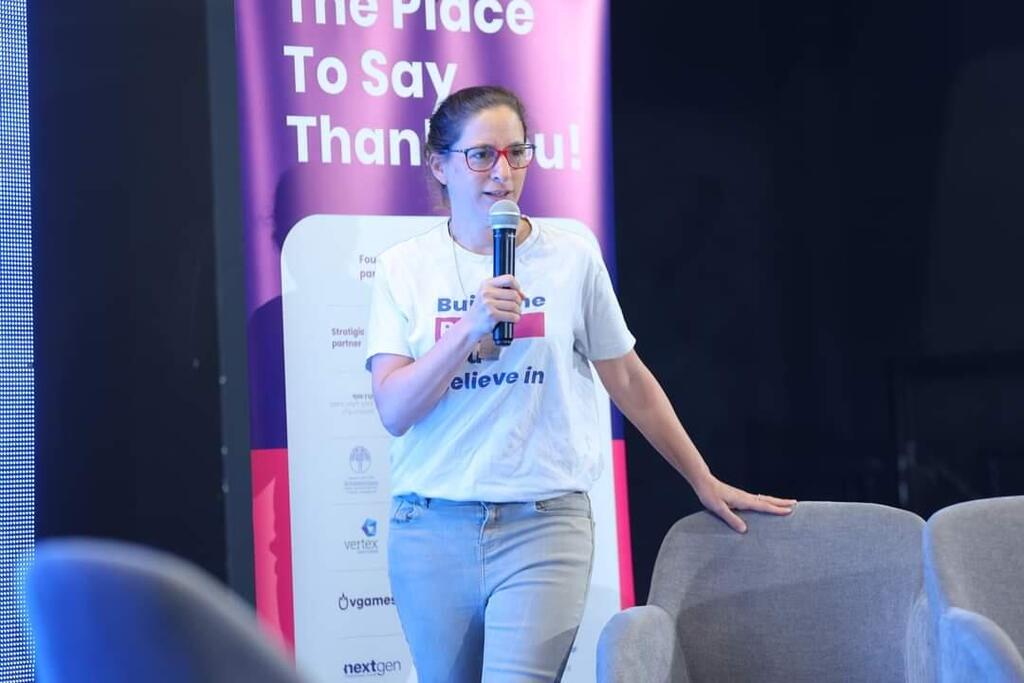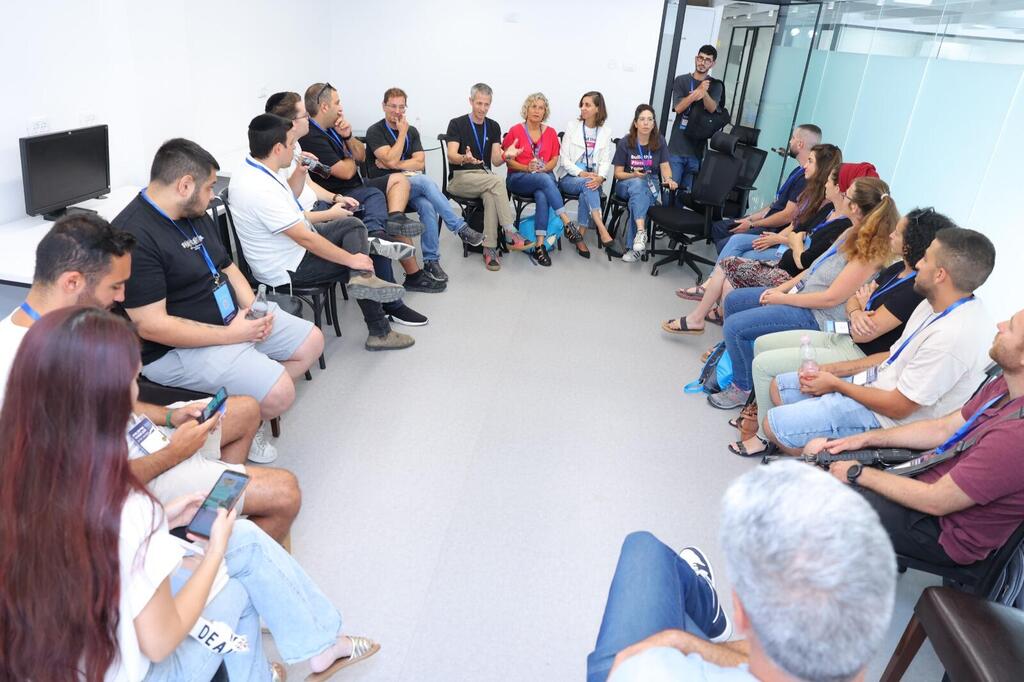
Rebuilding tech in the Negev: “Working in tech offers the best chance at social mobility in Israel”
Place-IL CEO Keren Halperin-Musseri spoke to CTech about their efforts to revive the tech industry in the Western Negev through matching employees with tech companies and also through the new co-working space that they have opened in Sderot to help keep tech workers in the region.
One of the many impacts of October 7 and the subsequent war in the Western Negev has been the crippling of the local economy including the nascent tech industry. With many communities having been destroyed, displaced and traumatized, rebuilding the local tech ecosystem may not have figured high on the priority list. But for Keren Halperin-Musseri reviving the economy, helping to provide jobs and stability, especially within the tech industry, is crucial to the recovery of the entire region.
As the Co-Founder and CEO of Place-IL, an organization that seeks to integrate underrepresented communities in Israel's tech industry, Halperin has been focused on building the tech industry in the Western Negev since well before October 7th, but this undoubtedly shifted the importance and urgency of their activities. “We wanted to both give [communities] both the hope and stability of working in the tech industry, and give them confidence about their careers and future, together with helping them rebuild their communities, kibbutzim, and cities.”
Since October 7th, Place-IL’s main goal in the region has been to place high-tech workers at tech companies, but also through building a designated co-working space in Sderot which officially opened last week. The workspace is within an existing facility called Nature Grove and hosts mainly junior tech professionals, providing them with a conducive environment to work and grow. Halperin-Musseri emphasized that this initiative is not just about placement but about creating a vetted marketplace of talent, with candidates undergoing a stringent evaluation and screening process, ensuring they are well-suited for tech roles.
Founded just two years ago, Place-IL was established with the goal of integrating underrepresented communities into the high-tech industry, including the Arab and Haredi communities as well as populations in the geographical periphery. Residents of peripheral regions, such as the Negev, have long faced significant barriers to entry into the high-tech sector which is heavily concentrated in the center of the country. This disconnect is often due to educational disparities, as most tech professionals tend to graduate from universities rather than colleges, where people from southern communities tend to study.
"We understood that if we, as an organization, and the high-tech industry wanted to be part of rebuilding the Negev, it doesn’t make sense to offer people from the Negev a job in Tel Aviv. The most frustrating thing is to see someone who has the qualifications and the motivation but can’t find the opportunity, and if they do, they have to relocate to the center," Halperin-Musseri noted.
Recognizing the need to support local communities, Place-IL began focusing on creating opportunities that would enable residents to remain in their hometowns while pursuing high-tech careers with employees being drawn from various towns and communities, including Sderot, Ashkelon, Rahat, and Lakiya.
This new direction was reinforced by a pivotal meeting between Halperin-Musseri's co-founder, Idan Tendler, and the mayor of Sderot. The mayor's message was clear: high-tech must be present in the Negev. This perspective resonated deeply with Halperin-Musseri and Tendler, prompting them to adopt a bottom-up approach rather than waiting for companies to build new offices in the region.
"Most people might translate that to building more offices or branches in the Negev," she said, which is a lengthy and arduous process. "It won’t happen fast and we aren’t sure if it makes sense. So we decided to go bottom-up rather than top-bottom, to see how many people in the area are qualified and interested in tech, and how many tech companies have open positions for juniors," Halperin-Musseri said.
"We are also planning to build a community from this group of people as it grows, to arrange meetups and ensure that seniors from the company come and give them growth opportunities," Halperin-Musseri shared. This effort aims to foster a sense of belonging and professional development, reducing the isolation often felt by individuals working remotely or in small clusters.
Place-IL has set an ambitious goal to integrate 400 new permanent employees from the Western Negev into the high-tech industry over the next four years, including interns and temporary employees who may transition into permanent roles. They have partnered with startups as well as medium to large-sized companies, mostly based in Tel Aviv.
However, challenges remain. Since well before October 7th, the tech industry has been grappling with a global economic downturn and a shortage of positions, particularly for junior employees with no experience. In order to help incentivize companies to hire personnel from the Negev, amid an unsteady economic period to say the least, Place-IL has secured funding from both the government and the tech industry to subsidize salaries. Despite the economic slowdown, there is a significant interest from tech companies to be involved in this initiative.
At first there were a lot of volunteer initiatives being led by the tech community to collect food, donations and anything else needed by impacted or displaced communities. But ultimately, Halperin-Musseri says, the most lasting thing the industry can contribute is helping to revive the economies of these communities. "It's the best thing you can do for these people. Working in tech offers the best chance at social mobility in Israel. The tech industry wants to support whatever the country needs. If anything, companies are really interested in hiring people from Sderot and elsewhere in the region and they have this envelope of assistance to help them to do so," Halperin remarked.
Her vision extends beyond the South. "We’re treating the Negev as a pilot," Halperin-Musseri said, explaining that the lessons learned here could be applied to and replicated in other peripheral areas in Israel, including the North.
















